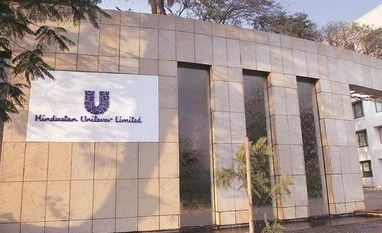The decision of fast-moving consumer goods major Hindustan Unilever’s management to increase the payment of royalty and technical fees to its parent Unilever could have an adverse impact on the company’s operating margins and earnings, at least in the short term.
The company announced on Thursday that it had entered a new agreement with Unilever, under which the royalty and central services fees would increase from 2.65 per cent of turnover in financial year 2021-22 (FY22) to 3.45 per cent. This will be staggered over three years, starting with a 45 basis point (bp) increase in effective cost for the February-December 2023 period.
For comparison, HUL spent Rs 1,323 crore in royalty and technical fees or 2.61 per cent of its net sales in FY22. The company reported net sales of Rs 51,193 crore in FY22 and operating and net profit of Rs 12,862 crore and Rs 8,818 crore, respectively.
A rise in the share of revenue going to Unilever as royalty and technical fees will cut into its operating profit for FY23. Analysts say the exact impact of the higher payout also depends on commodity and energy prices, which have a big influence on HUL’s raw material costs and gross margins. The company also has the option of passing on the higher royalty to customers through price hikes.
HUL said the royalty payment gives its access to Unilever’s portfolio of global brands, technology, intellectual property (IP), and the latest products.
HUL last entered a technology, trademark licence and central services agreement with Unilever group in January 2013 for a period of 10 years. HUL said during the tenure of the contract, its turnover doubled and Ebitda (earnings before interest, taxes, depreciation, and amortisation) margin improved by nearly 1,000 bps. One basis point is one-hundredth of a per cent.
The company reported an Ebitda margin of 24.8 per cent in FY22, up 840 bps from 16.5 per cent in FY12.
In recent years, HUL’s expenses on royalty and technical fees have grown at a slower clip than its revenue. In the last five years, royalty and technical fees grew at a compound annual rate (CAGR) of 5.1 per cent against 9.9 per cent growth in its net sales.
The new agreement will restore this gap and cheer Unilever investors. In March 2018, Unilever raised its stake in HUL from 52.48 per cent to 67.28 per cent at a cost of nearly Rs 19,200 crore.
On the flipside, however, the hike in fee comes at a time when HUL has suffered a decline in Ebitda margins due to higher raw material costs. The company reported an Ebitda margin of 24.44 per cent in Q3FY23, down from 25.61 per cent a year ago and lower than the five-year average of 25.2 per cent.
To read the full story, Subscribe Now at just Rs 249 a month
Already a subscriber? Log in
Subscribe To BS Premium
₹249
Renews automatically
₹1699₹1999
Opt for auto renewal and save Rs. 300 Renews automatically
₹1999
What you get on BS Premium?
-
Unlock 30+ premium stories daily hand-picked by our editors, across devices on browser and app.
-
Pick your 5 favourite companies, get a daily email with all news updates on them.
Full access to our intuitive epaper - clip, save, share articles from any device; newspaper archives from 2006.
Preferential invites to Business Standard events.
Curated newsletters on markets, personal finance, policy & politics, start-ups, technology, and more.
Need More Information - write to us at assist@bsmail.in
)